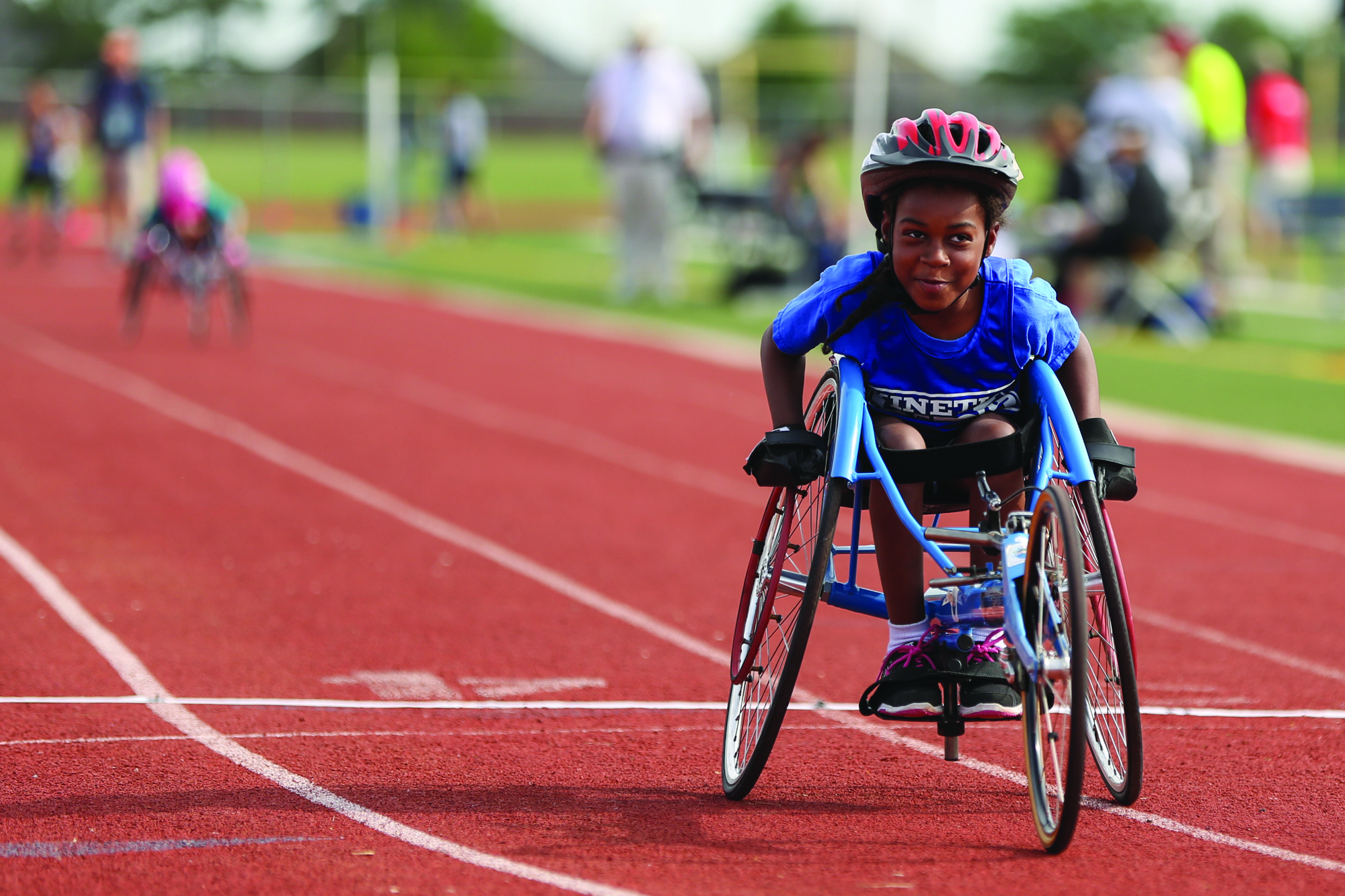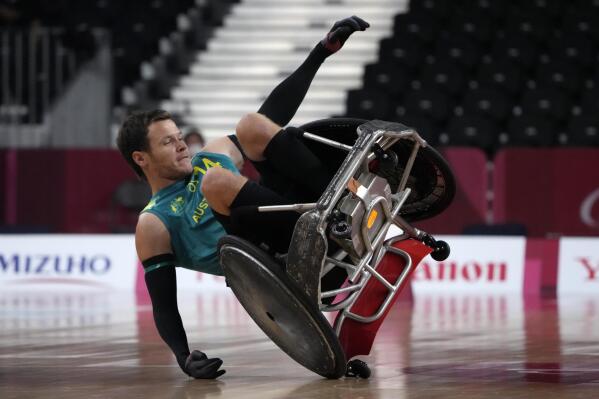In the Paralympic Sports, there are many different kinds of sports that are for those with different kinds of disabilities. For instance we have running for amputees where they use running blades and then we have running for those in wheelchairs where they use a specially made type of wheelchair referred to as a v-frame racing wheelchair. But the question that comes up is if all athletes with any type of disability be allowed to be classified for every sport? Ultimately, this comes down to a few categories that are very important to look at. For starters, a lot of this topic really falls onto what exactly the individual would like to do. Say that the individual was paralyzed waist down and uses a wheelchair and would like to play a sport of some kind. They are left with various kinds of sports like track, basketball, softball, and much more. Now say the individual wants to go into track racing, he will then be competing with other handicapped individuals that are in a similar situation as they are. In this case, it comes down to what kind of disability is at hand. This is because when we take a look at track racing, there is a fine line difference with running blades and wheelchair users which then begs the conversation of fair competition. In most cases there are classification systems that are put into place to ensure that their is fair competition. This helps group athletes based off of their impairment level which allows for the competition to equal and the outcome then is decided by skill and effort rather than the extent of ones disability. Although it would be amazing to see those with running blades and wheelchairs compete against one another, it comes down to how fair it really is. Outside of professional sporting events, I will say though that I don't see why not in recreational setting where it is purely for fun though. After all, it allows individuals to be educated about different kinds of disabilities and the challenges some may face on a day-to-day basis.

The question of should Paralympic sports be inclusive I feel is more so a obvious answer. In a short few words yes, the Paralympic sports should be inclusive for many reasons. For starters the Paralympic movement aims to promote inclusivity and to help provide opportunities for those with disabilities who are looking to participate in sports at the highest level. On top of this, it also promotes equal opportunities for athletes with a wide range of disabilities, giving them the chance to play, compete, and excel in their chosen sports. This doesn't just include those with physical disabilities, but also those with visual impairments, intellectual disabilities, and more. To add onto this, when giving these individuals the platform to participate in sports at the highest level it allows them to be able to educate those who may not know much about the topic at hand. It allows them to challenge stereotypes and misconceptions about disability, hence inspiring others while raising awareness about the capabilities of those with disabilities. In an article posted on the United Nations, author Sir Philip Craven who is the president of the International Paralympic Committee, states that "Over the years, the Paralympics have developed a strong track record for challenging deep-rooted beliefs regarding disability and acting as a catalyst for changing the approach to social inclusion in the countries where the Games are held" (Craven, 2016). The Paralympics being inclusive really allows for those who may have the same disability as they have capable of competing at a very high athletic level to feel motivated and empowered. It helps other individuals who may be struggling realize that they still can do what they love, whether it was running, playing basketball, baseball, or more, at the end of the day it may given them the push that they have been looking for.
But how exactly can we create a fair and balanced playing field with all the different kinds of disabilities? As touched on above, the creation of classification systems help categorize athletes based on the extent and impact of their disabilities. It helps maintain a fair and level playing field in the competitive professional field of sports and still remains to have its positive impact on the world. Most importantly though, I would say that receiving feedback from the athletes themselves would really help find a balance. If we were to involve athletes with disabilities in the development and evaluation of these classification systems, it can help us gain more so of an understanding on what would be best for everyone. From their experiences, it can help give us an insight which can provide valuable perspectives on the effectiveness and fairness of these classifications. As well, allowances for adaptive equipment and technology can really help level the playing field for those who may have different disabilities. But, careful consideration should also be given in order to ensure that in some cases the equipment isn't giving any unfair advantages. "
And that’s the most important thing to do: act now. Don’t wait for a student who is wheelchair-bound (or otherwise mobility-impaired) to request special accommodations. Being proactive can mean the difference between an athlete who becomes an enthusiastic participant, and one who goes away disappointed" (Helen, 2010). This quote really stood out to me in a blog post on SportsFieldManagement for many reasons. One issue that I feel we face a lot is that many sport complexes may lack the accessibility for those in need which can be demotivating and can make them feel forgotten or left out. When sports complexes create their playing fields with those individuals in mind, it can help them feel invited and included in these events. It can allow these individuals to make new friends and meet new people who they can educate on the topic of their disability. Simply starting with understanding the needs of these athletes and how much the need is growing can really make the biggest impact in these issues.





Comments
Post a Comment